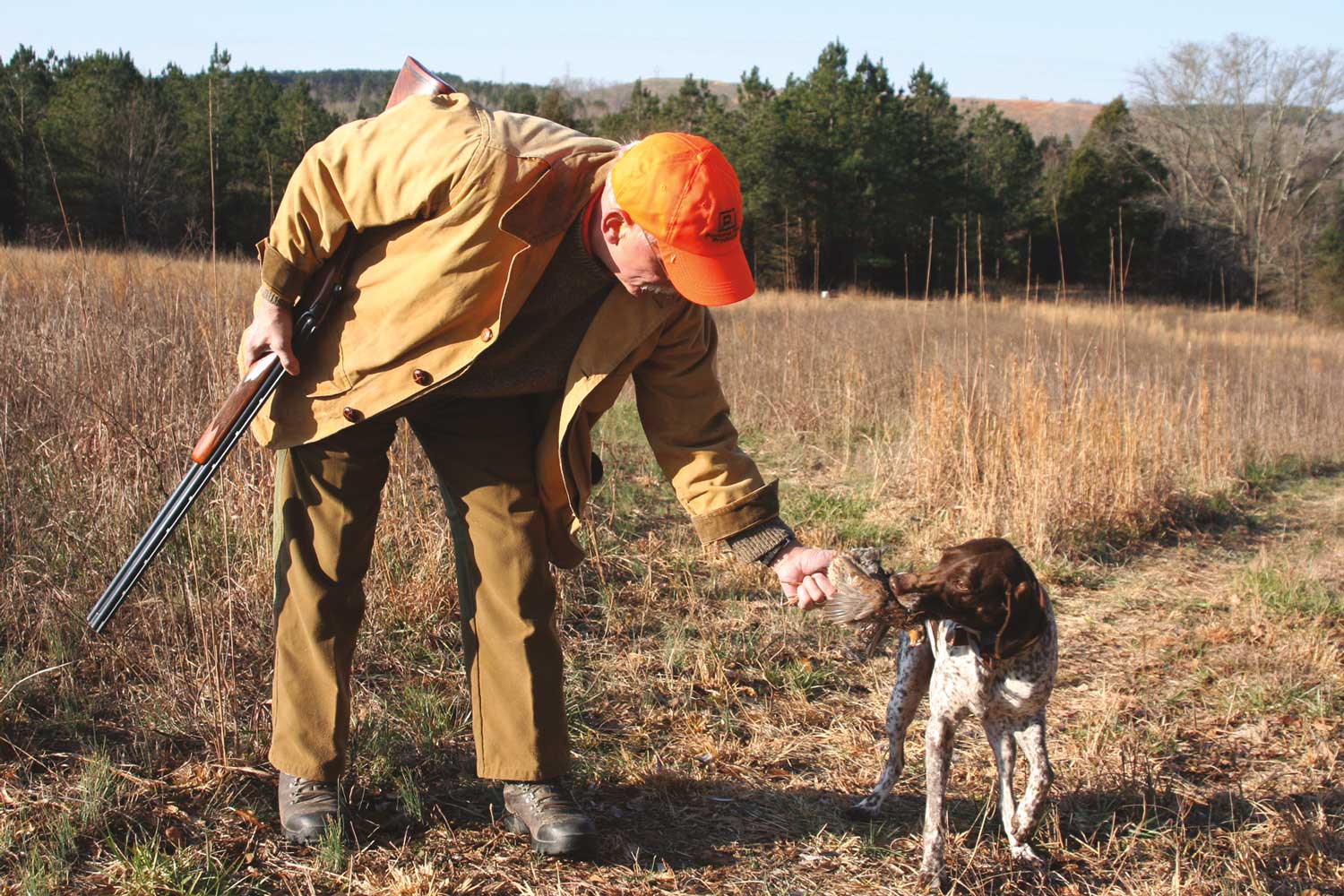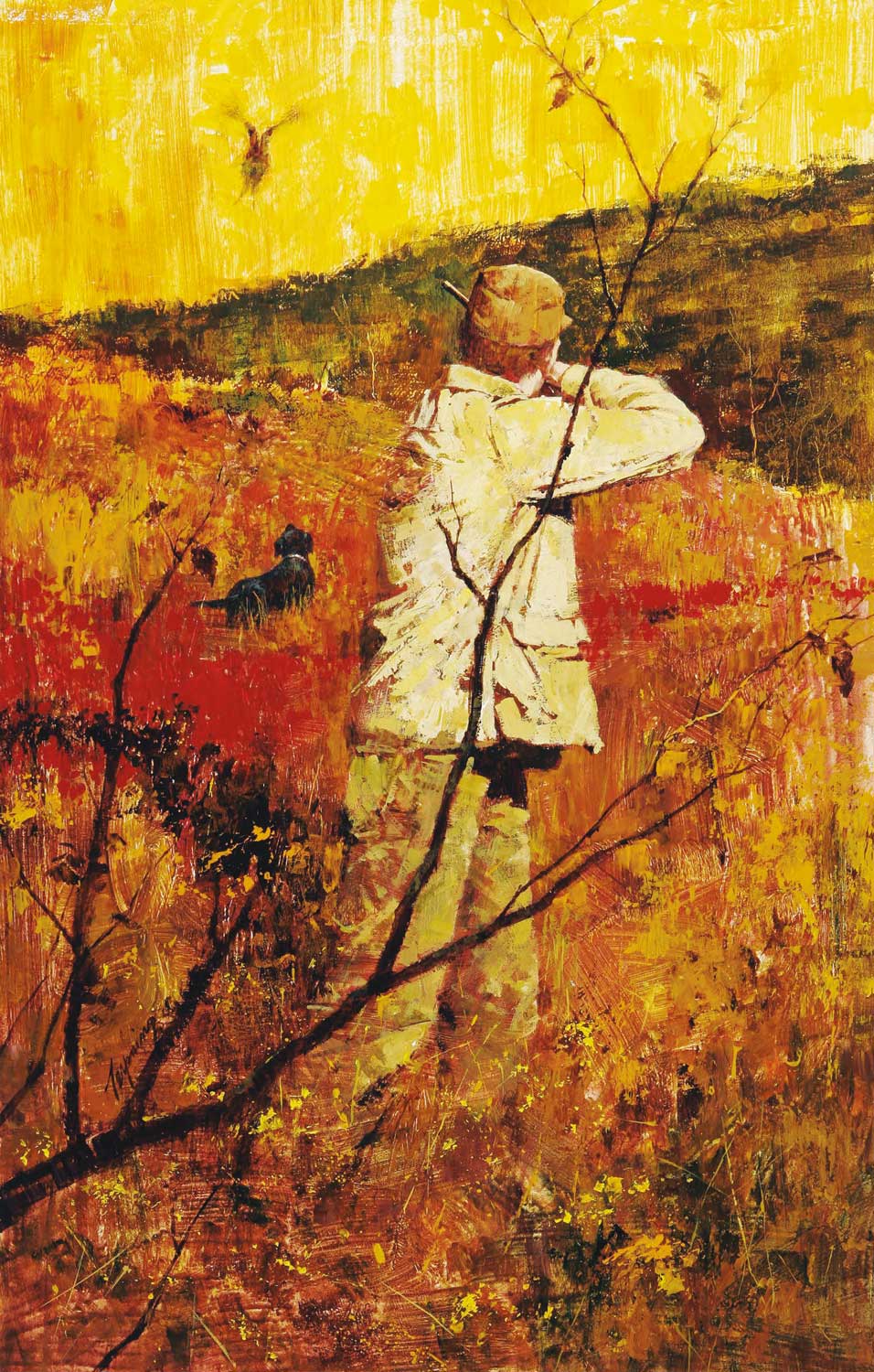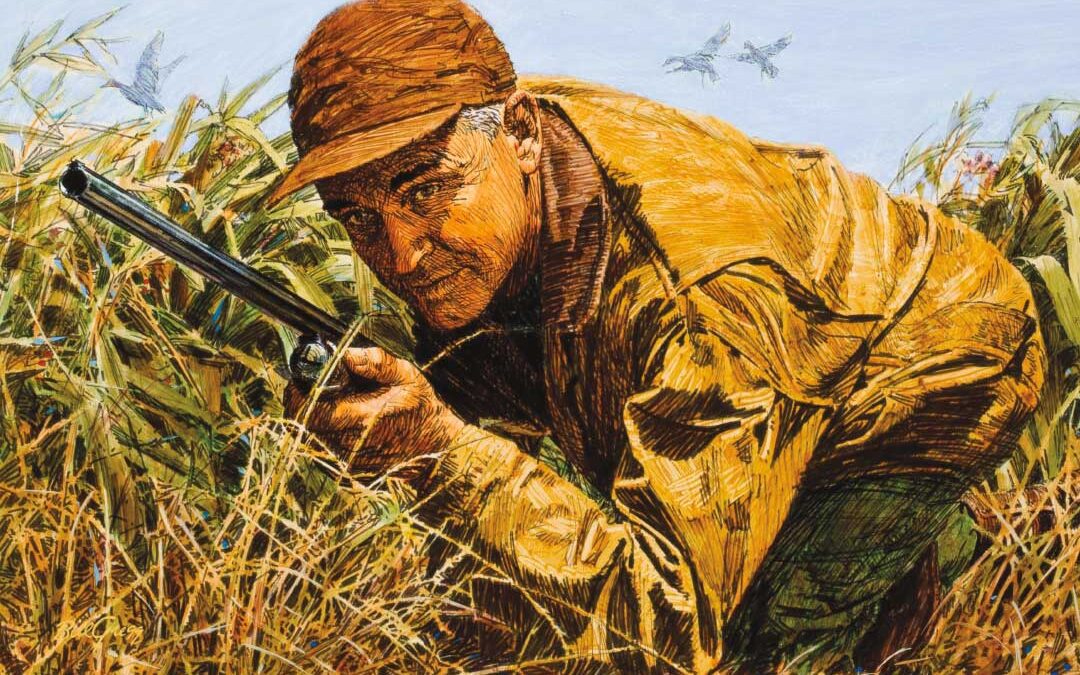I only got four bucks in it. Tell you what, I’ll give it to ya for five.”
This was my friend, Fuzzy, fresh from a weekend of garage sales.
“I don’t need a bird coat,” I replied, “I’ve got a pretty good one already. RedHead, I think, had it for years.”
Pretending not to hear, he said, “I bought it from a widow woman, selling her husband’s huntin’ stuff. Hoped to pick up a gun or two, but she said she gave ’em to her sons. I guess nobody wanted the coat. Pretty nice-lookin’ coat, though.”
He was still pitching.
Relenting, I said, “Well, let me try the thing on. Smells a little musty, doesn’t it?”
“Yea, probably hung in the shed for a while. She said he’d been sick a long time. Nice old lady. Kinda felt sorry for her.”
“You only gave her four dollars for the coat. You didn’t feel too sorry for her.”
“Well, that’s all she was askin’.”
He was on the defensive now.
“Okay,” I said finally, “I’ll give you four bucks for it. I really don’t need it.”
“I paid four dollars for it. Are you that cheap?”
I did not respond, and I was not offended. I waited.
“Okay,” he sighed. “Gimme four bucks.”
I hung the coat in the closet and forgot about it.
Years later my son Bobby and I were preparing to visit an upstate preserve for an afternoon of pointing dogs and liberated birds. As we gathered our gear, I noticed he was wearing my RedHead coat.
“Hey, isn’t that my coat?” I asked brilliantly. We both knew it was.
“Uh, yes sir, it is. Can I wear it?”
“It appears you already are,” I answered. “And what am I supposed to wear?”
“Well, you’ve got that other one. You know, the one you bought from Fuzzy for four dollars.”
The coat had not left the closet since I had bought it. Now, faced with wearing it, I examined it closely for the first time. Size 44, it fit me, loose enough to be comfortable with a sweater. Made of stout, stiff, thorn-proof canvas with corduroy lining the sleeves and collar. With its double-stitched seams and full-cut shoulders, it smacked of quality and was probably expensive for its day.

Clad in his old canvas coat, the author accepts a bobwhite quail from Bailey, a German shorthair at Sunshine Hunting Preserve in South Carolina.
A button was missing, and the game pouch was stained with the blood of successful hunts, and on the back and sleeves were small tears, unmistakable evidence of encounters with barbwire fences. As I ran my hands over the coarse fabric, I realized the old coat had a tangible and singular character, and more importantly, a rich, if unwritten history.
Exploring the pockets, I discovered the small beard of a jake.
So, the gentleman hunted turkeys, too, I thought. And in my mind I saw him.
I saw him sitting back against a broad oak tree, thrilling to the wildness of a gobbler’s call as the sunrise spawned a chilling breeze. And then, walking along a budding river-bottom with that gobbler over his shoulder, its red, white, and blue head bumping against the tail of the coat, leaving its signature among the stains that show today.
I saw him approaching a staunchly pointed dog, braced for the feathered shrapnel of an exploding covey, and reaching back to slip a plump quail into the game pocket.
I saw him bending down to scratch the ear of a favored beagle and pushing sideways through a patch of briars, his gun held high as the wicked little hooks scraped along the canvas, making the sound of ripping cloth.
I saw him tilting his head to the call of a hen mallard, and smiling, call back to her through the fog, the collar of the coat turned up against the dampness.
This was his hunting coat, bought in an era when a man did not have a quad parka for ducks, waxed cotton for upland birds, and a vest with a padded seat for turkeys. There is no evidence that he ever worked in this coat. No spatters of paint, no grease stains mar it. The old fellow wore it when he hunted, and only then. Putting it on, his blood would race as he headed out to some whistling-cold hardwood ridge or dark, brooding swamp.
I’m sure his sons, when they were little, wore it draped hugely over them, pretending to hunt, and as they grew older, appropriated it, as sons are wont to do, for their own outings. It saddens and baffles me that they did not claim it when he died.
Now each time I slip it on, I think of him. These thoughts are inescapable and not unwelcome. I wear his old canvas coat, and his heart, a hunter’s heart, beats in me.
I know you, old man. Come with me.

Pheasant Hunter by Howard Terpning–Courtesy heritage auctions/ha.com

